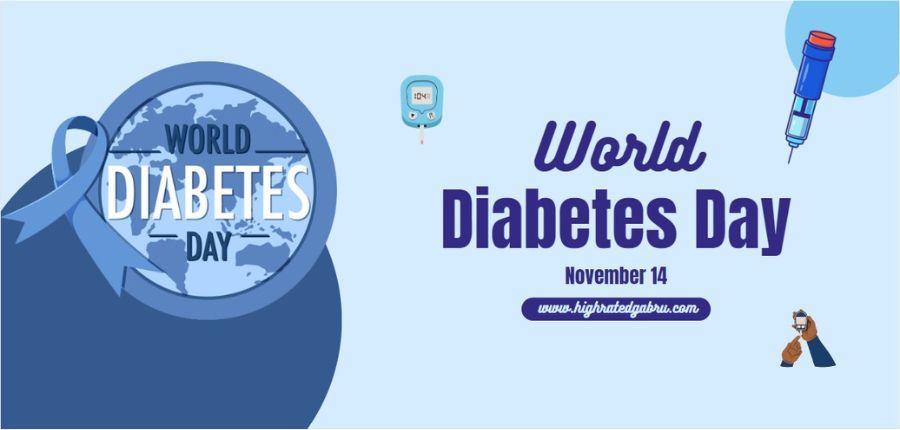World Diabetes Day was created to raise awareness and promote better understanding of the global diabetes epidemic, which currently affects 422 million people around the world, according to the International Diabetes Federation (IDF).
The annual campaign also encourages people to participate in local activities to spread the word about diabetes prevention, treatment, and management.
For example, every year on November 12th, thousands of people worldwide organize walks as a way to demonstrate their commitment to fighting diabetes and encourage others to do the same.
What is World Diabetes Day?
On November 14th, people from around the world will come together to learn about diabetes.
World Diabetes Day is a chance for those living with diabetes, those at risk of developing diabetes, and all those who care about them to join together in solidarity and advocate for better lives.
The day is also a time to reflect on the global diabetes epidemic. It’s estimated that 422 million people have diabetes, most of which are undiagnosed or unaware they have it.
The Global Diabetes Epidemic:
This day is an opportunity for people affected by diabetes and their families, friends, and communities to come together in remembrance of those who have lost their lives to this disease.
It is also a time to reflect on the global epidemic that has swept across every continent and country; whether you are living with type-1 or type-2 diabetes, know someone who does, or just want to show your support, there are many ways you can be involved in spreading awareness about this dangerous illness.
The International Diabetes Federation (IDF) provides tips on how to get involved, such as:
- Sharing World Diabetes Day information on social media;
- Hosting your own event and inviting others to participate;
- Encouraging restaurants to offer healthier menu items;
- Volunteering with an organization that assists those affected by diabetes;
- Putting up posters;
- Talking to local schools;
- Helping out at fundraising events;
- Writing letters to elected officials;
- Trying new recipes that are low carb and diabetic friendly;
- Attending educational seminars;
- Getting family members screened for prediabetes;
- Sending thank you cards to the healthcare providers who help keep you healthy;
- Visiting a diabetes exhibit at a museum;
- Participating in research studies to improve the quality of life for people with diabetes; and
- Helping spread awareness
Impact of Diabetes:
Diabetes is a disease in which either the pancreas doesn’t produce enough insulin or cells are resistant to insulin, leading to high levels of sugar in your blood. It can cause damage to your eyes, kidneys, and nerves.
Type-1 diabetes is an autoimmune disorder and can be prevented with a healthy diet and exercise. Type-2 diabetes is caused by lifestyle factors such as obesity, lack of physical activity, a family history of diabetes and aging.
Risk factors for type-2 diabetes include cardiovascular diseases like hypertension, dyslipidaemia and heart failure.
The complications of diabetes also include retinopathy (eye disease) that could lead to blindness, neuropathy (nerve problems), nephropathy (kidney disease) and erectile dysfunction.
Type-2 diabetes can often be treated by making changes to one’s lifestyle such as weight loss and more exercise.
People with diabetes have a higher risk of developing other health conditions including heart disease, stroke, kidney disease, foot ulcers, gum disease and depression.
Reflections on World Diabetes Day:
On November 14th, World Diabetes Day is a time for people around the world to reflect on the global diabetes epidemic and work together in order to find a cure.
The day encourages people all over the world to talk about how diabetes affects them and their family members, friends, and communities. It’s also an opportunity for people with diabetes or those at risk of developing it — as well as health care professionals — to learn about prevention, diagnosis and treatment options.
With the increasing number of people diagnosed with type-2 diabetes, one way to prevent this is by maintaining a healthy weight through physical activity and dieting. If you are diagnosed with type-1 diabetes, it can be hard living without insulin injections but you can still lead a full life if you make sure your blood glucose levels are stable by eating regularly, exercising regularly and checking your blood glucose levels often.
